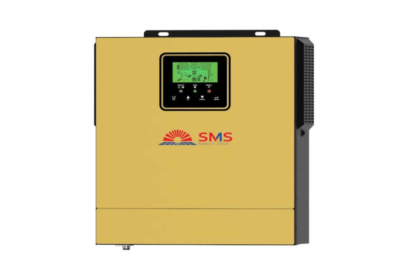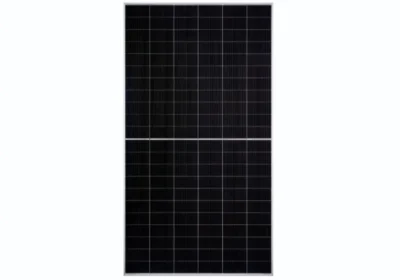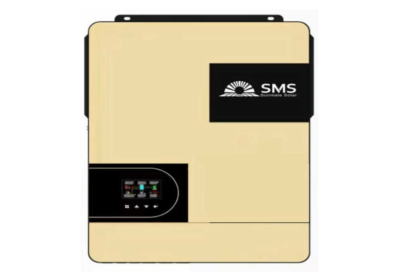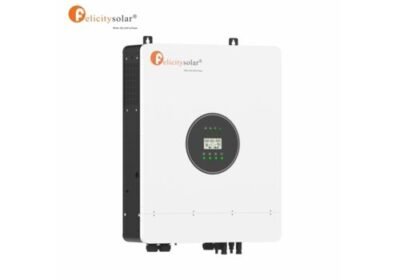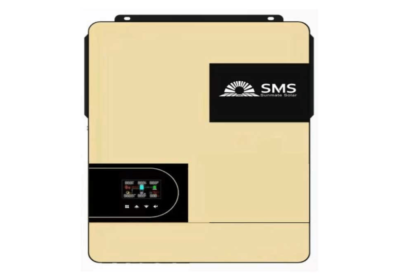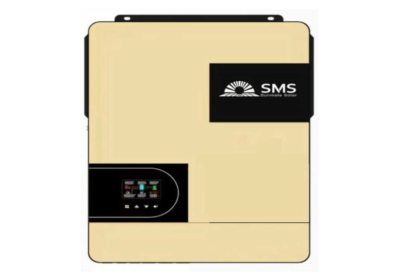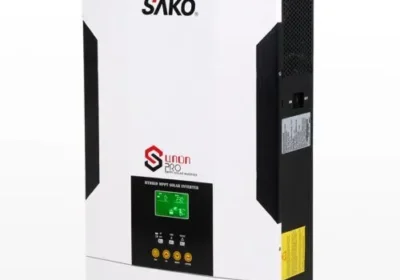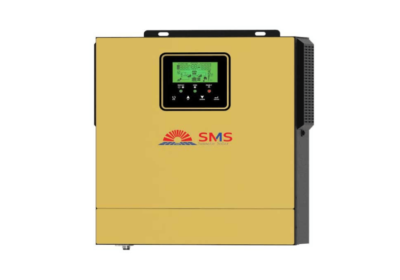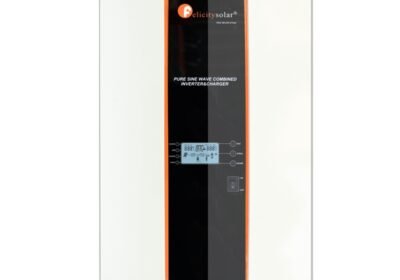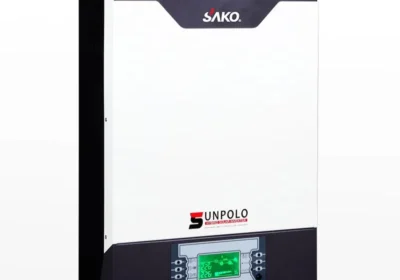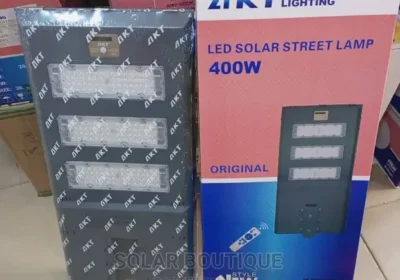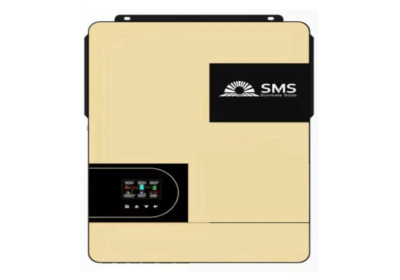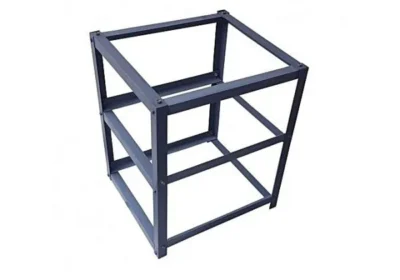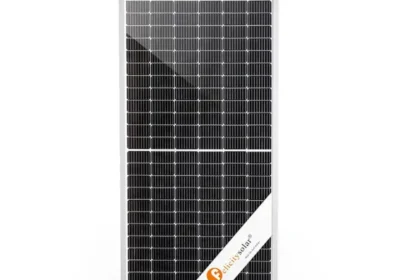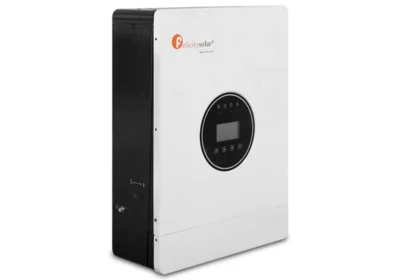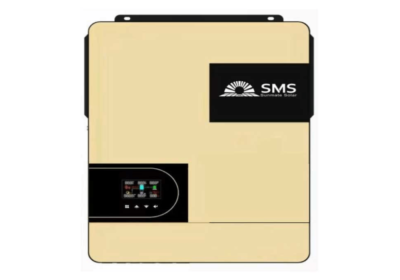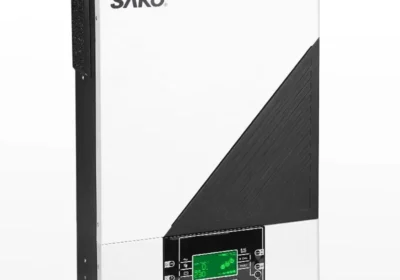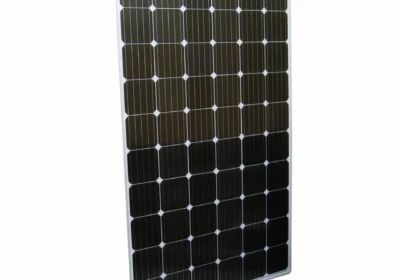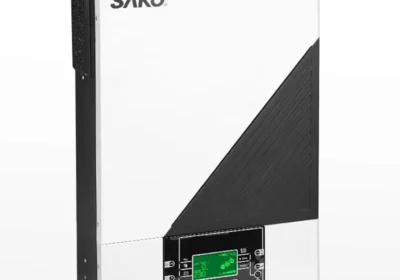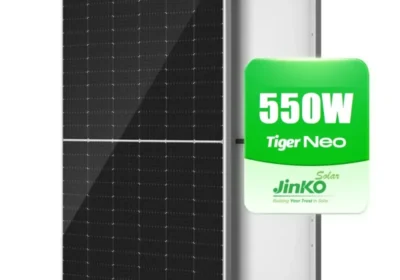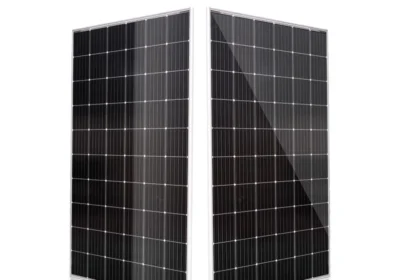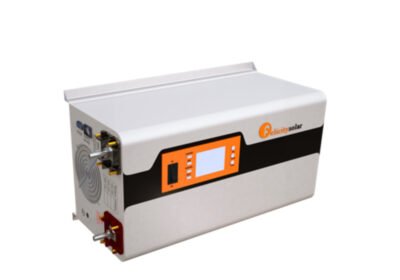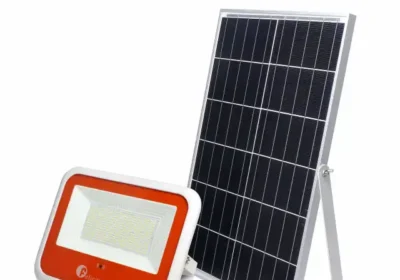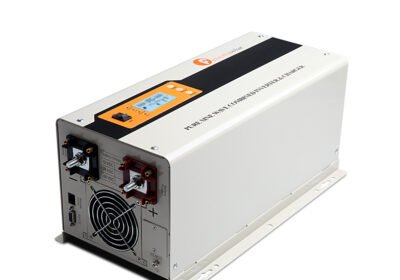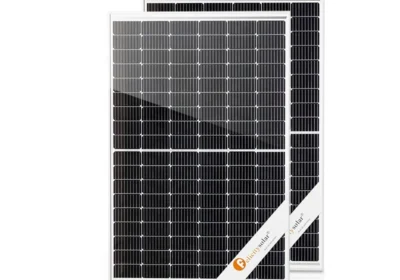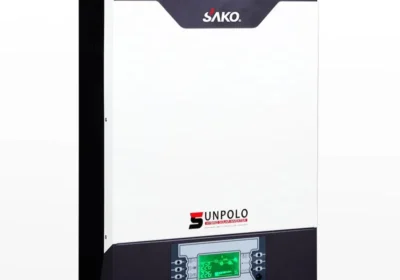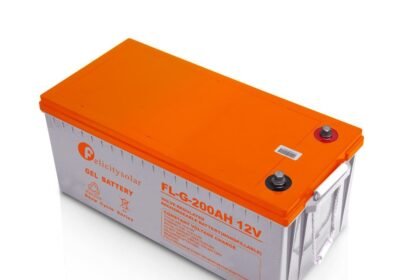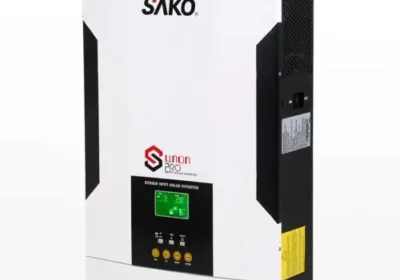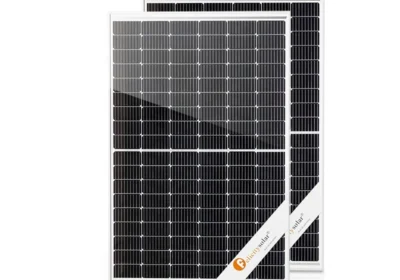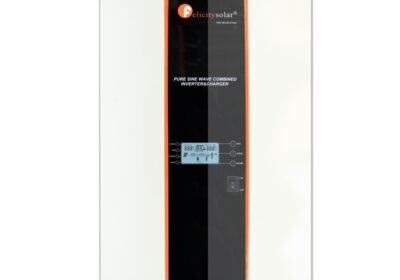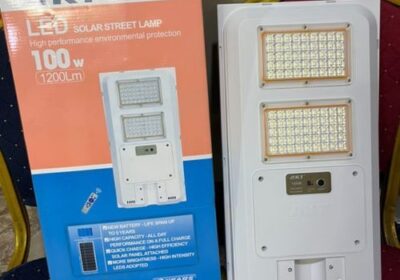Solar Battery Price in Nigeria (2025): Best Types, Brands & Buying Guide
What is a Solar Battery?
Solar Battery Price in Nigeria has become a crucial consideration for individuals and businesses seeking reliable energy solutions amidst the country’s power challenges. Solar batteries store the electricity generated by solar panels in the daytime so that you can use it when the panels aren’t actively producing, like at night or when it’s cloudy. They improve the utility of solar systems through power supply constancy, particularly where electric power networks cannot be relied upon.
In Nigeria, the price of solar batteries varies based on capacity, type, and brand. For instance, a 200Ah deep cycle battery can range from ₦240,000 to ₦400,000, depending on the manufacturer and specifications. Lithium-ion batteries, known for their longevity and efficiency, are priced higher, with options ranging from ₦1,150,000 to ₦6,000,000, catering to different energy needs and budgets.
Popular brands like Amaron Quanta, Luminous, and Felicity Solar offer a variety of batteries to suit diverse requirements. For example, the HBL Optimuz 200Ah/12V Inverter Battery is available at ₦360,000, while the Felicity Solar Gel Battery 200Ah 12V is priced around ₦342,000.
When planning to invest in solar batteries, it’s advisable to consult with reputable dealers and consider factors like warranty, after-sales support, and compatibility with existing systems. This approach ensures that you select a battery that not only fits your budget but also meets your energy requirements effectively
Types of Solar Batteries in Nigeria
🔋 1. Lithium-Ion Batteries (10kWh Lithium Battery)
- ✅ Fast charging
- ✅ Long lifespan (2000–5000 cycles)
- ✅ Maintenance-free
- ❌ Expensive upfront
🔋 2. Tubular Lead-Acid Batteries
- ✅ Affordable
- ✅ Suitable for harsh Nigerian conditions
- ⚠️ Requires distilled water maintenance
- ⚠️ Heavier and larger
🔋 3. GEL / SMF Batteries
- ✅ Sealed and maintenance-free
- ✅ Safe for indoor use
- ❌ Shorter lifespan than lithium
Solar Battery Price in Nigeria (2025)
| Battery Type | Capacity | Estimated Price (₦) |
|---|---|---|
| Lithium-Ion (LFP) | 12V 100Ah | ₦220,000 – ₦300,000 |
| Lithium-Ion (LFP) | 24V 200Ah | ₦400,000 – ₦650,000 |
| Lithium-Ion (LFP) | 48V 100Ah | ₦700,000 – ₦1,200,000 |
| Tubular Lead-Acid | 12V 150Ah | ₦120,000 – ₦180,000 |
| Tubular Lead-Acid | 12V 200Ah | ₦160,000 – ₦250,000 |
| GEL / SMF Battery | 12V 100Ah | ₦90,000 – ₦130,000 |
| GEL / SMF Battery | 12V 200Ah | ₦140,000 – ₦200,000 |
💡 Prices vary by brand, location, warranty, and dealer markup.
Top Solar Battery Brands in Nigeria
1. Felicity Solar Battery
Overview: One of Nigeria’s most trusted solar brands, Felicity offers both tubular and lithium batteries. Their products are widely used in homes, schools, farms, and commercial buildings.
- Popular Models: 12V 200Ah (Tubular), 24V 100Ah (Lithium)
- Price Range: ₦130,000 – ₦550,000
- Why Choose It: Excellent durability, long life cycles, and compatibility with Felicity inverters and panels.
⚡ 2. Luminous Battery
Luminous is a well-known Indian brand with strong distribution across Nigeria. Their tubular batteries are designed for frequent power cuts and high load applications.
- Popular Models: Luminous 220Ah Tall Tubular Battery
- Price Range: ₦130,000 – ₦180,000
- Why Choose It: Proven deep-cycle performance, long service life, and great value for homes.
⚡ 3. Genus Battery
Another Indian brand with a strong presence in Nigeria. Genus batteries are robust and long-lasting, with options ranging from GEL to tubular designs.
- Popular Models: Genus 200Ah Tubular, Genus 12V 220Ah GEL
- Price Range: ₦120,000 – ₦180,000
- Why Choose It: Affordable, easy to maintain, and trusted by installers across Nigeria.
⚡ 4. Gennex Lithium Battery
Gennex is a Nigerian-owned brand delivering premium lithium-ion batteries suited for modern solar systems.
- Popular Models: Gennex 48V 100Ah LiFePO4
- Price Range: ₦350,000 – ₦1,000,000+
- Why Choose It: Superior technology, faster charging, smart BMS, and great local support.
⚡ 5. Bluegate Battery
Known for inverter systems, Bluegate also manufactures budget-friendly GEL batteries suitable for small to mid-sized solar installations.
- Popular Models: Bluegate 12V 200Ah GEL Battery
- Price Range: ₦110,000 – ₦140,000
- Why Choose It: Value-for-money, ideal for low-consumption users like shops and homes.
⚡ 6. SMK Battery
SMK batteries are deep-cycle GEL types, designed to handle regular discharges and provide consistent backup in tough conditions.
- Popular Models: SMK 12V 200Ah
- Price Range: ₦100,000 – ₦160,000
- Why Choose It: Reliable in heat and dusty environments. Good for rural solar installations.
⚡ 7. Narada Lithium Battery
Narada is a premium global battery brand with a presence in Nigeria. Their lithium batteries are used in smart home and commercial solar systems.
- Popular Models: Narada 48V 100Ah LiFePO4
- Price Range: ₦500,000 – ₦1,200,000
- Why Choose It: High efficiency, built-in safety systems, and remote monitoring options.
⚡ 8. Talker Energy Battery
A rising brand in Nigeria’s solar market, Talker Energy provides both gel and tubular batteries tailored for local conditions.
- Popular Models: Talker 12V 220Ah GEL Battery
- Price Range: ₦110,000 – ₦180,000
- Why Choose It: Affordable with decent performance and available across major solar stores.
How to Choose the Right Solar Battery for Your Home
| Consideration | Why It Matters |
|---|---|
| Battery Capacity (Ah) | Determines how much power you can store |
| Voltage Rating | Must match your inverter (12V, 24V, or 48V) |
| Battery Type | Choose between lithium, tubular, or GEL based on budget |
| Lifespan | Lithium lasts longer (5–10 years) than lead-acid (2–4 years) |
| Warranty | Look for 1–3 years at minimum for peace of mind |
| Depth of Discharge | The deeper it discharges without damage, the better |
Solar Battery Capacity vs Backup Time
Here’s a quick guide to help estimate how long a solar battery can power common appliances:
| Battery Setup | Appliances Powered | Backup Time (Approx.) |
|---|---|---|
| 1 x 200Ah 12V | Lights, fans, router | 6–8 hours |
| 2 x 200Ah 12V | Above + TV, fridge | 8–12 hours |
| 4 x 200Ah 12V | Full home (except AC) | 12–18 hours |
| 48V 100Ah Lithium | Lights, fans, fridge, router | 10–14 hours |
| 48V 200Ah Lithium | Home + freezer + small AC | 15–24 hours |
⚠️ Actual backup time depends on load and inverter efficiency.
Best Solar Battery in Nigeria: Important Considerations
Capacity (Ah): batteries have different capacities, 100Ah, 200Ah, or higher. The more you pay, the more energy they can store. Look into the battery capacity (measured in kilowatt-hours, kWh) to ensure it aligns with your energy storage requirements. Look at the battery capacity (in kilowatt-hours, kWh) so that you know it will meet your energy storage requirements.
Lifespan: Consider the anticipated lifespan of the battery, as it can impact its overall cost-effectiveness over time.
Some batteries, such as flooded lead-acid types, do require maintenance, while others, such as lithium-ion types, are nearly maintenance-free.
Cost: Weigh initial costs versus savings and efficiency over the long term.
Environmental Conditions: Select a battery type that can withstand Nigeria’s environmental conditions, including temperature and humidity.
Availability of Spare Parts and Support: You will want to make sure spare parts and technical support are readily available in Nigeria.
Brand and Quality: Renowned brands such as Luminous, Sukam, and Exide tend to carry higher price tags but also come with reliability and warranty assurance.
Technology More cost-effective but less longevity and efficiency than lead-acid technologies, more pricey, longer-lasting advanced technologies, e.g., Lithium-ion bats.
Exchange Rates: As a lot of batteries is imported, the fluctuating value of the Nigerian Naira against the US dollar will have a massive impact on charges.
Vendor & Location: The price may differ between urban and rural areas, as well as between different vendors, such as online platforms and retail stores.
Cost of Solar Batteries in Nigeria (2025 Estimate)
Here’s a breakdown of costs by type and capacity:
Lead-Acid Batteries
o Capability: 100Ah – 200Ah (12V)
o Price Range: ₦200,000 – ₦400,000
o Popular Brands: Luminous, Exide, and Mercury.
Gel Batteries
o Capaci𝚝y: 100Ah 𝗼𝘁 200Ah (12V)
o Price Range: ₦250,000 – ₦450,000
o Common Brands: Ritar, HBL, and Trojan.
Lithium-Ion Batteries
o Capacity: 3.5kWh to 10kWh
o Retail Price: ₦800,000 – ₦3,500,000
o Popular Brands: Tesla Powerwall, LG Chem, and BYD
Flow Batteries
o Capaçitat: Variada (personalitzable)
o Price Type: ₦1,500,000 and above
Some Common Brands: Redflow and Primus Power
Comparison of Solar Batteries
| Battery Type | Capacity | Price Range (₦) | Remarks |
|---|---|---|---|
| Lithium-Ion Batteries | |||
| 5 kWh | 1,200,000 – 1,600,000 | Highly efficient and durable. | |
| 10 kWh | 2,400,000 – 3,200,000 | Available for homes and commercial use. | |
| 15 kWh | 3,600,000 – 4,800,000 | Ideal for higher energy demands. | |
| Gel Batteries | |||
| 100Ah (12V) | 120,000 – 180,000 | More durable than lead-acid. | |
| 200Ah (12V) | 250,000 – 400,000 | Maintenance-free, long-lasting. | |
| Flow Batteries | |||
| 10 kWh | 3,500,000 – 5,500,000 | Designed for commercial and large-scale use. | |
| 20 kWh | 7,000,000 – 10,000,000 | Premium for scale and sustainability. | |
| Tesla Powerwall | 13.5 kWh | 4,000,000 – 5,500,000 | Premium lithium-ion battery. |
| LG Chem RESU | 10 kWh | 2,800,000 – 4,200,000 | Durable lithium-ion power source. |
| BlueNova | 10 kWh | 2,500,000 – 3,500,000 | Zero-emission, efficient lithium-ion battery. |
| Luminous | 200Ah (12V) | 120,000 – 300,000 | Trusted brand in Nigeria. |
| Trojan | 200Ah (12V) | 180,000 – 400,000 | Quality and durability respected globally. |
| Sungrow | 5 kWh | 1,100,000 – 1,500,000 | Low-cost lithium-ion battery. |
| Dyness | 10 kWh | 2,000,000 – 3,000,000 | Common for home and small businesses. |
| Pylontech | 5 kWh | 1,300,000 – 1,800,000 | Scalable and modular systems. |
| BYD Battery Box | 10 kWh | 2,500,000 – 3,800,000 | Long-lasting, scalable, energy-efficient. |
| Huawei Luna 2000 | 5 kWh | 1,200,000 – 1,700,000 | Best energy storage system with warranty. |
| 10 kWh | 2,400,000 – 3,200,000 | ||
| Amaron Quanta | 150Ah (12V) | 110,000 – 200,000 | Small, high-performance lead-acid battery. |
| Exide | 200Ah (12V) | 150,000 – 350,000 | Long service life, low-cost solution. |
| Phoenix | 100Ah (12V) | 70,000 – 100,000 | Common in basic solar systems. |
| 200Ah (12V) | 140,000 – 250,000 | ||
| Ritar | 100Ah (12V) | 120,000 – 170,000 | Dry, maintenance-free gel battery. |
| 200Ah (12V) | 250,000 – 350,000 | ||
| Victron Energy | 100Ah (12V) | 150,000 – 200,000 | High-end durable gel batteries. |
| Eastman | 200Ah (12V) | 250,000 – 400,000 | Long-lasting and affordable gel battery. |
| Felicity Solar | 5 kWh | 1,200,000 – 1,600,000 | Commonly used for home systems in Nigeria. |
| ZTE Solar Batteries | 10 kWh | 2,000,000 – 3,500,000 | Affordable, new entrant. |
| TrinaBESS | 7.5 kWh | 1,800,000 – 2,800,000 | Reliable with trusted quality management. |
| Growatt | 5 kWh | 1,300,000 – 1,700,000 | Known for reliability and integration. |
| Akos Power | 10 kWh | 2,000,000 – 3,500,000 | Cost-effective, high-efficiency lithium-ion option. |
| Redflow | 10 kWh | 3,500,000 – 5,500,000 | Scalable installations. |
| 20 kWh | 7,000,000 – 10,000,000 | ||
| Narada Batteries | 150Ah (12V) | 100,000 – 180,000 | Available in lead-acid and gel types. |
| Ovation Solar | 200Ah (12V) | 140,000 – 280,000 | Good brand with competitive pricing. |
| Genus Batteries | 200Ah (12V) | 130,000 – 250,000 | Long-term home systems support. |
| ZCell | 10 kWh | 3,800,000 – 6,000,000 | Reliable and highly scalable. |
| Primus Power | 10 kWh | 3,600,000 – 5,800,000 | Ideal for industrial configurations. |
| ESS Inc. Flow Battery | 20 kWh | 7,000,000 – 9,500,000 | High durability for commercial applications. |
Note: Prices may change based on vendor, brand, and individual location.
Where to buy solar batteries in Nigeria
Solarenergysupplystores.com is one of the online marketplaces in Nigeria to buy and sell solar Batteries. A classified site that connects buyers and sellers of solar batteries to a diversity of products to choose from, with options catering to multiple budgets and energy needs.
Reasons why Solarenergysupplystores.com is Nigeria’s No. 1 online Solar Batteries Shop?
o With Lots of listings: Find dozens of solar products sellers who would sell solar panels, inverters, batteries, accessories, solar wires and cables, and other solar components.
o Easy to use and dependable: Find reliable sellers and suitable suppliers right from the comfort of your home.
o Inexpensive: Ensure to check the prices of the sellers for affordable Solar Batteries.
Pros: Price comparisons are simple, convenient.
Cons: Delivery charges
Visit Solarenergysupplystores.com for sustainable energy.
Specialized Solar Shops
Many retailers focusing specifically on solar energy, like Rubitec Solar and Blue Camel Energy, carry high-quality solar batteries.
Pros: Expert guidance, product quality assurance.
Pros: Prices can be lower than general retailers.
Local Markets
Ariaria Market in Aba and Alaba International Market in Ojo, Lagos, are also popular markets for electronics like solar batteries.
Pros: Price negotiation power
Disadvantages: Warranty options, inferior products.
Distributor Outlets
Branded distributors deal directly with manufacturers; you can find reliable products with warranties.
Pros: Genuine products, post-sale service.
Pros: Set prices, limited negotiation involved
Financing options for solar batteries in Nigeria
With solar batteries potentially costing more upfront, financing options are increasingly being adopted. Some common methods include:
Split Timings Payment Schemes: Provided via retailers and monetary companies to divvy up the value over a time interval.
Solar-as-a-Service MV: The customers pay a monthly fee without owning any components of the solar system.
Government Incentives: Some level of subsidies or tax breaks may be available depending on the state.
Battery Installation & Maintenance Tips
- ✅ Install in a cool, dry, well-ventilated area
- ✅ Use correct battery cables and fuses
- ✅ For tubular batteries, check the water level every 3–6 months
- ✅ Avoid over-discharging—use inverters with low battery cut-off
- ✅ Keep terminals clean and corrosion-free
FAQs About Solar Battery Prices in Nigeria
1. What’s the best battery for solar in Nigeria?
Lithium-ion batteries are the best for longevity and fast charging. For affordability, tubular batteries are widely used.
2. How many batteries do I need for a 5kVA inverter?
Typically 4 x 200Ah 12V batteries or 2 x 48V lithium batteries, depending on your load.
3. Do solar batteries come with inverters?
No. Batteries are usually sold separately unless in a full solar kit bundle.
4. How long do solar batteries last?
- Lithium: 5–10 years
- Tubular: 2–4 years
- GEL/SMF: 1.5–3 years
5. Can I use car batteries for solar systems?
No. Car batteries are designed for short bursts of energy, not long-term deep discharge cycles.
Conclusion
Buying the right solar battery in Nigeria is crucial for maximizing your solar investment. Whether you’re powering just lights and fans or an entire house, your battery choice will affect backup time, performance, and long-term savings.
Compare lithium vs tubular vs GEL options, always check warranty and compatibility, and buy only from trusted sources like SolarEnergySupplyStores.com.


